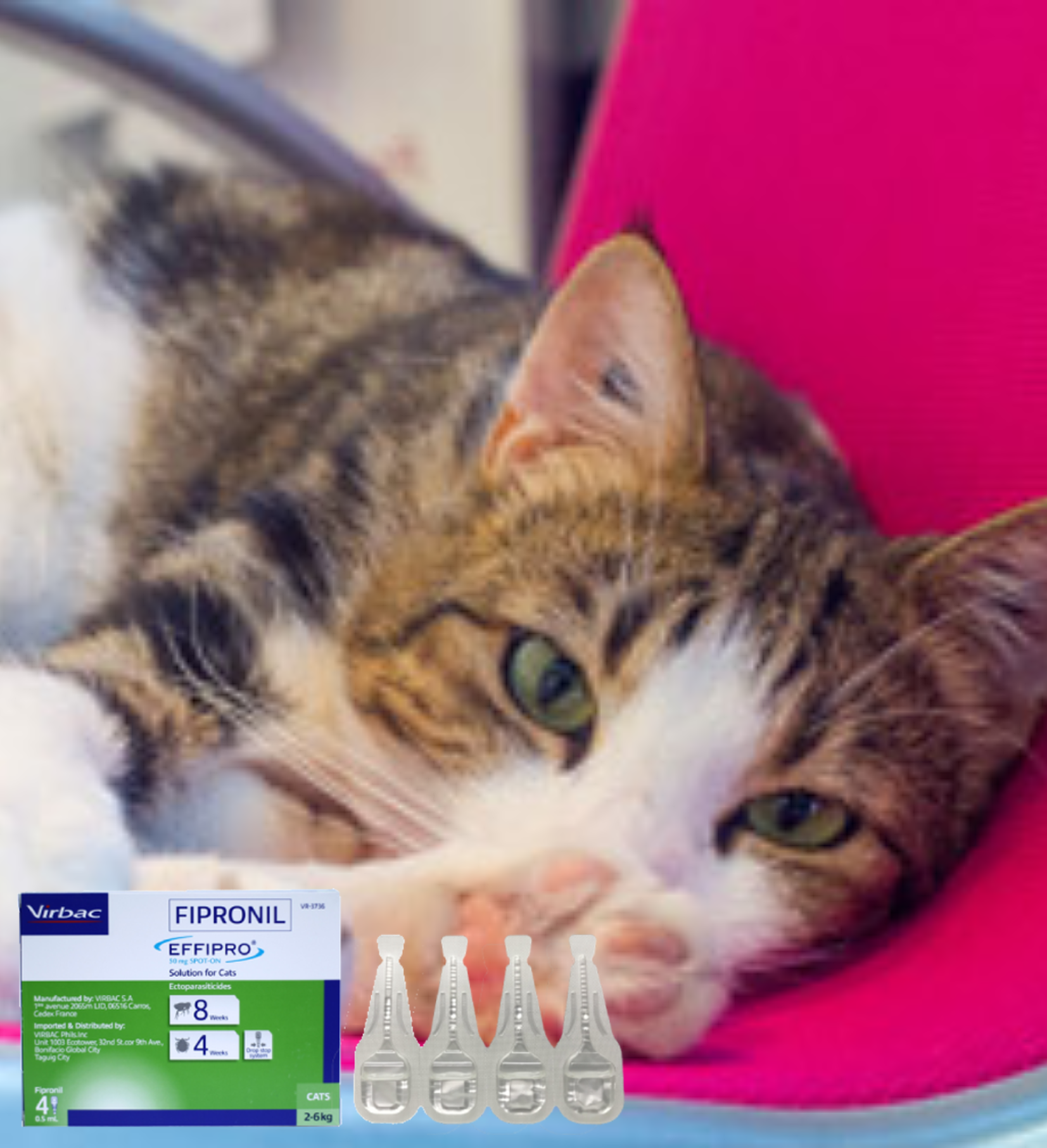
Fleas & Worms
Parasites are ubiquitous in the outdoor environment. If your cat goes out regularly, it is very likely that he is in regular contact with fleas, ticks, mites, eggs or larvae of digestive parasites, etc. The risk is greatest if he frequents other cats outside.
Your veterinarian is in the best position to advise you a protocol to control parasites in your cat. It has to be tailored specifically to your cat's environment. It will help you to protect your cat's health (and yours)!
Fleas but not only...
A cat that goes out is very exposed to flea contamination but other external parasites can also harm its well-being, particularly acari. In this family, ticks are well-known but there are also otodectes, responsible for "ear scabies", a classic cause of external otitis in cats: contamination will often occur through close contact with a contaminated animal.
In summer and autumn, cats can also be bothered by “aoûtats” (Neotrumbicula automnalis) or harvest ticks; the larvae of these tiny mites get fixed to places where the skin is thinnest, and pump the cat's blood. When present in large numbers, a kind of "orange powder" appears on the ears, between the fingers, on the abdomen, etc.
The most common parasitic worms in cats
Cats that hunt and consume whatever is available around us can harbour many parasites. A dozen of species are commonly found in the digestive tract of outdoor cats: roundworms, hookworms, whipworms, tapeworms, etc. Young cats are usually the most infested.
When the infestation is limited, these parasites cause few symptoms in cats but they can still disrupt their digestion. In addition, some parasites can be dangerous to humans when they accidentally ingest eggs released by cats.
Annual or semi-annual treatments do not significantly reduce the level of environmental contamination. This is why treatment every three months is recommended for outdoor cats.
One-celled parasites
Outdoor cats are often contaminated by one-celled parasites (or protozoa). Coccidia and giardia are among the most common protozoa in cats and they can induce chronic diarrhea.
Conventional dewormers are not effective against these types of parasites. If the veterinarian detects this type of infestation in your cat, he will prescribe a specific treatment.
For a cat that regularly spends time in the garden or in the countryside, it's worth asking your veterinarian to do a stool analysis to find out what types of parasites may be present in your pet.
Of course, a cat is more likely to be contaminated with internal parasites (roundworms, tapeworms...) if it goes out regularly, but it may still carry the parasites with which it arrived in your home, especially if it is a kitten. As for fleas, they can come to your house without you noticing!
Simply putting your cat in a cat boarding, taking it to a house frequented by other animals, or welcoming visitors with their four-legged companions can allow parasites to arrive in your home and to settle.
It is rare for a cat to live in a flea-proof universe
If your cat lives with a dog, be aware that the dog's fleas lay eggs and that their development takes place in the animal's environment. Flea larvae take shelter in gaps near the cat's sleeping quarters before turning into adult fleas and jumping on the passing cat.
Treating the dog without treating the cat that lives with it would be a pity because the cat then serves as a "tank" for parasites and facilitates the persistence of fleas in your home.
Roundworms are very common in kittens
Roundworms (ascaris) are extremely common parasites in kittens: they get infested from birth and it is necessary to regularly deworm your kitten throughout its first year to get rid of it, even if it lives indoors. Ask your veterinarian for advice on the frequency and type of deworming drug to use.
Regular treatments are important for the health of the cat but also for the health of the family where it lives because the accidental ingestion of ascaris eggs can be dangerous for humans, especially children.
Fleas can transmit a tapeworm to cats
Adult cats are often parasitized by a tapeworm called Dipylidium caninum (despite its name, it is hosted by both cats and dogs). The cat contaminates itself by doing its daily grooming: it swallows fleas that harbor the larvae of this tapeworm. Of course, cats that are not treated against fleas are the most at risk.
Once Dipylidium develops in the digestive tract, the cat becomes an excretor of tapeworm eggs, maintaining the parasitic cycle.
No cat, even living inside, is therefore exempted from being dewormed from time to time!
Dewormers targeted against ascaris are not always active against tapeworms, so it's better to seek advice from your veterinarian to choose a suitable dewormer.

